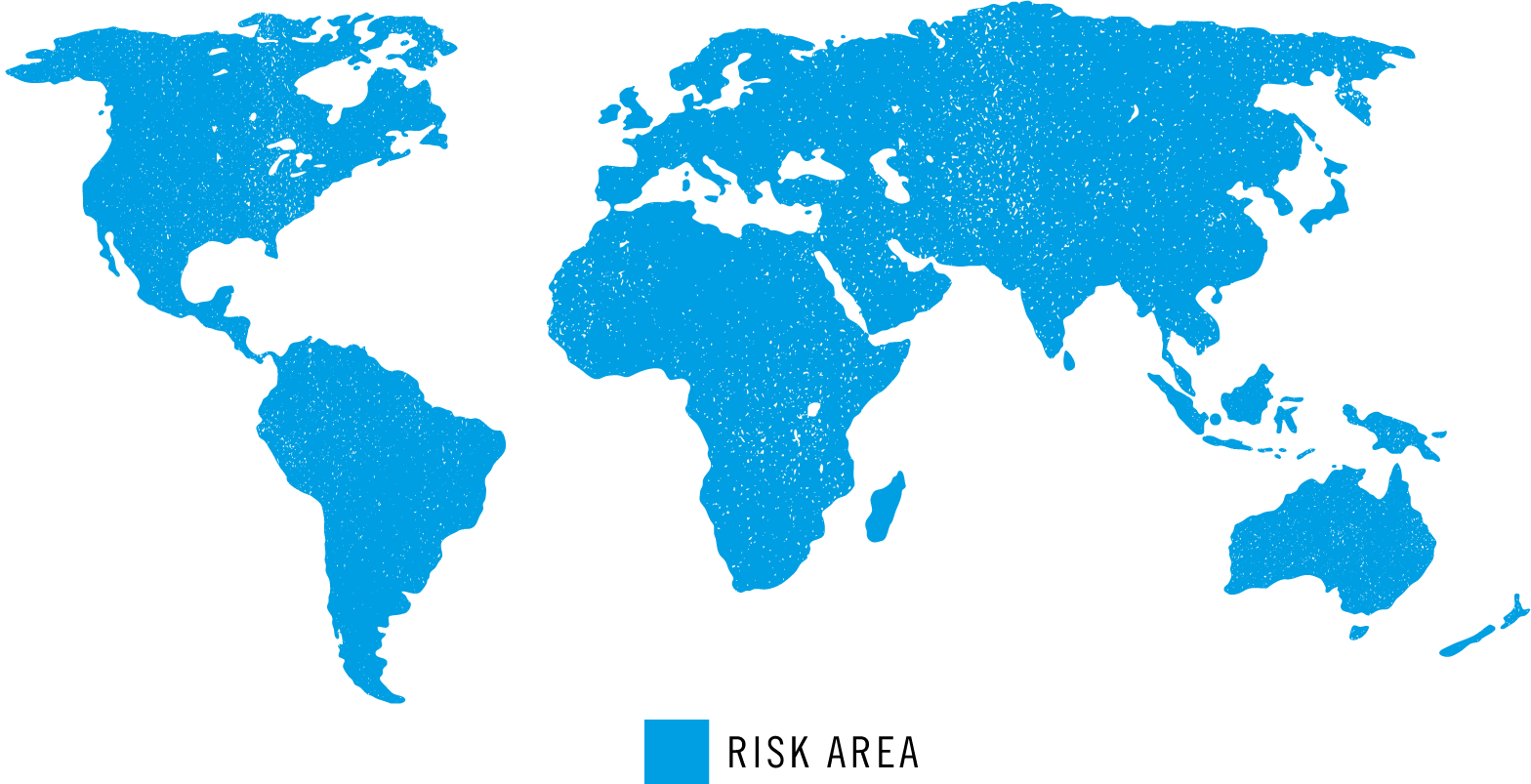Skin Infections
Skin infections from a wound or even a graze may need treatment with antibiotics. Watch out for a wound oozing a lot of pus, surrounded by a red area which gets bigger. Co-amoxiclav and Clarithromycin (POM’s) are the most useful antibiotics for this type of infection. If there is also a fever or raised temperature, then antibiotics are probably required but always try to seek medical advice before taking them.
Wounds which fail to heal are often best treated by using a Hydrogel dressing such as Granuflex which can be left in place for up to a week. A particularly bad skin ulcer contracted in the tropics which fails to heal may benefit from a course of Metronidazole.
Worm Infestations
There are various types of these, and often symptoms will not appear until some time after returning home.
Mebendazole (Vermox) is a useful drug for treating many, but not all, worm infestations.
Fungal Infections
Some types of fungal infection are more likely to flare up in the tropics. They usually occur between the toes (athlete’s foot) or in the groin (dhobi itch). They can be very irritating, but are easily treated with Clotrimazole (Canestan) or Miconazole (Daktarin) creams and powders. Treatment should always be continued for a week, after the symptoms have disappeared. Washing the affected areas and the liberal use of antifungal powders, like Tolnaftate Powder (Mycil), will help to prevent these infections. Candidial vaginal infection (thrush) often flares up in the tropics and women who experience such problems should carry an appropriate treatment.
Bites
Animal bites are always a cause for concern, and if from a rabid animal, fatal without treatment. Whether or not rabies vaccine was given before departing further injections must be administered as soon as possible after the bite. In any case always scrub the wound with soap and water, remove any foreign matter and then irrigate with either iodine or a high percentage alcohol.
Snake Bites
Snake bites are not usually fatal, but hospital aid should be sought as soon as possible. The affected limb should be immobilised with a splint, and Paracetamol (not aspirin) used as a pain killer. ONLY if the snake venom is known to be of the dangerous ‘neurotoxic’ type, would a tight tourniquet be called for. The best method of achieving this is to wind a crepe bandage very tightly around the splinted limb starting at the extremity and working toward the body.
Insect Bites
Insect bites and stings can be very irritating. Eurax is very good for relieving the itch, but Hydrocortisone is better for reducing both itching and swelling. Hydrocortisone should not be used if the bites are infected. Always clean and use an antiseptic on any bites. Antihistamine tablets can also bring relief: Chlorpheniramine (Piriton) can make people drowsy, whereas Loratidine and Cetirazine does not, although are more expensive to buy.
Wound Care
Cleaning Wounds
– Ensure your own hands are clean before you start
– Wash wounds with antiseptic solution or ‘clean’ water
– Always clean wounds from the middle outwards
– Remove all visible large pieces of dirt, etc, with either tweezers sterilised in boiling water or by irrigating the wound by vigorously squirting the cleaning solution at it through a large syringe
– Treat very superficial cuts by one wipe of an antiseptic wipe
– Dry all wounds thoroughly before dressing them. Apply antiseptic wash or spray and dress the wound if necessary
– Do Not be tempted to use ‘folklore’ remedies like mud, faeces or leaves etc on wounds
– Do Not put alcohol i.e. gin, brandy, etc, on wounds (the exception to this is an animal bite as alcohol can kill the rabies virus).
Points Of Caution Applying Dressings
– Very dirty or wet dressings must be replaced as they can be a source of infection.
– Soiled dressings that are oozing must also be regularly replaced for the same reason
– Be aware that in the heat strapping tape and plasters are more likely to cause skin reactions under the sticky areas
– Never put tape around the entire circumference of a limb or finger as this could cut off the circulation
Closure Of Deep Wounds
Do not close wounds if:
– They are more than 12 hours old
– The wound cannot be cleaned thoroughly
– The wound already looks infected
– The wound is an animal or human bite
Signs Of Infection
– The wound is red, hot or swollen
– Pus is present
– The patient has a fever
– The wound smells foul – antibiotics may be needed; seek medical help
Other Tips
When in deserts
When in deserts or other hot places extra salt may be required. Do not use salt tablets, instead put extra salt on food, or take salty drinks such as Bovril.
Mild sunburn
This can be treated by applying an aftersun containing aloe vera or, for more severe burns use a Burngel and take paracetamol or aspirin for pain. More severe sunburn may need hospitalisation. Make sure a high factor, 15+, sunscreen is used.
Travel Sickness
There are many preparations for travel sickness and it is worth experimenting to discover which one suits you best. They all take a time to work so must be taken an hour or so before travel.
Contamination
As the washing up water used in many places is likely to be contaminated, using your own eating utensils and cup can save you from potential problems.
– Keep your skin well moisturised.
– Keep your finger nails short.
– Wash your hands regularly.
– Treat all wounds no matter how small.
– Carry cold sore treatments if you are prone.
– Carry a dental kit if you have unreliable teeth.
Risk Areas

